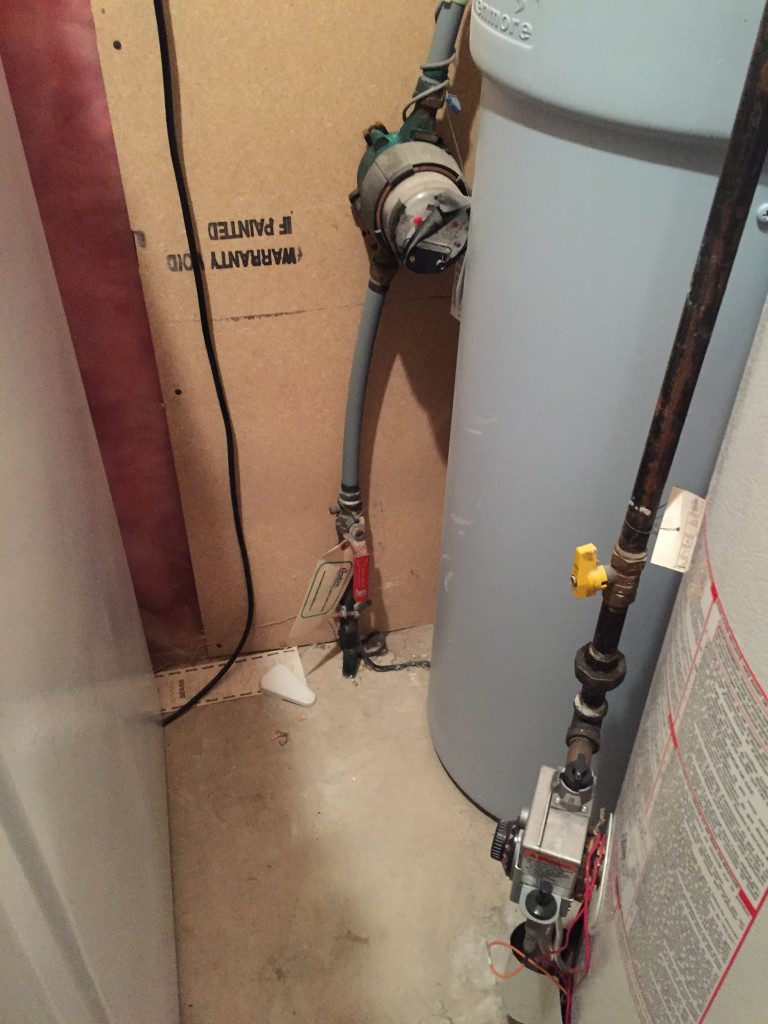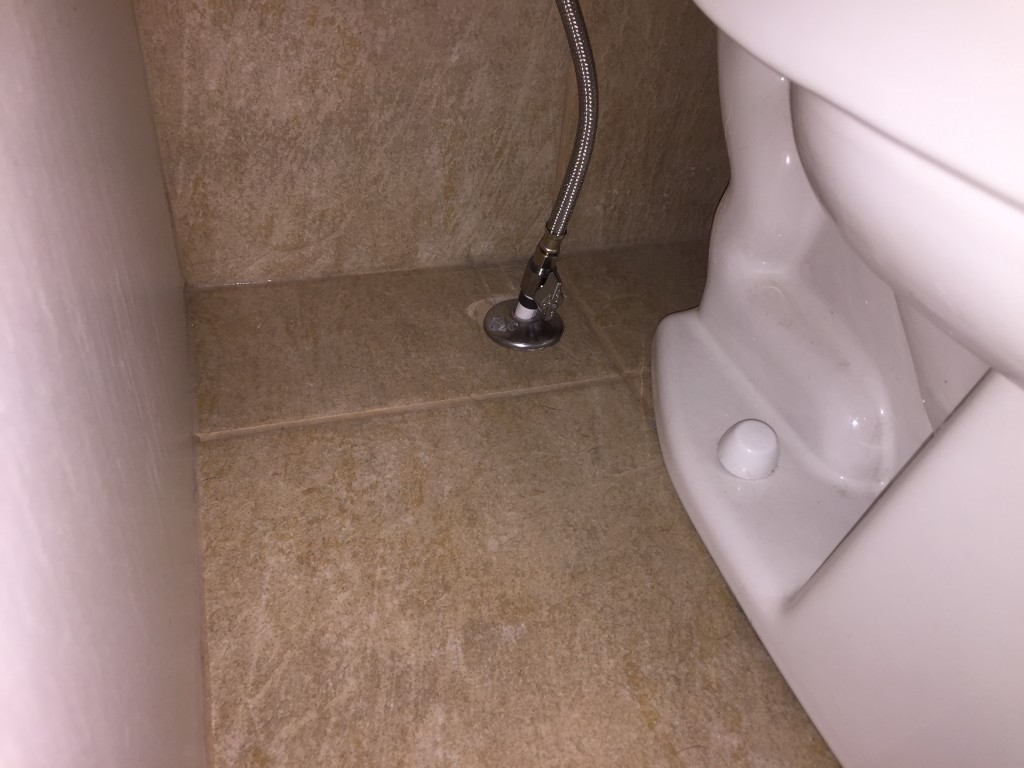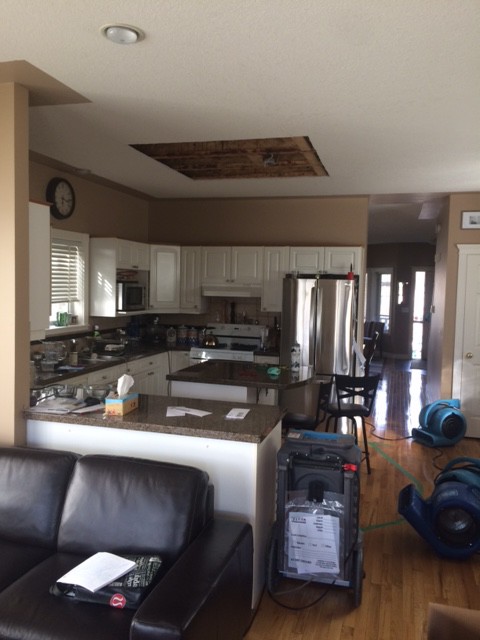I received a panicked phone call from my wife (Geneva) …”where is the water shut off valve for the house!?!”
I knew enough, from the tone and pitch of her voice, to save my question, “what’s happening??” for later.
I quickly told her where the shut off valve was, got the story and told her to call the insurance company and start a claim.
“How To Survive Water Damage
In Your Home”
If you would like to join my mailing list for fresh updates and inside Mortgage and Real Estate information please click here. Please also consider sharing this post if you like it. Thank you, Chad Moore.
1. Know where the main water shut off value is for your house. In the event of ANY sort of water leak, shutting off the water supply is crucial. Sometimes they can be in hard to reach areas, or hidden from plain sight. When there is a water streaming from the second floor of your home, through your kitchen and into your basement, I think quickly finding the main water shut off valve is important – especially in a panic! I told Geneva, “It’s the red handled valve, between the deep freeze and water softener at about knee height.” You can see it here:

2. Have up to date insurance. Trust me, going through an immediate plead with God that I have insurance coverage is FAR WORSE than making 10 minutes to review that I have insurance coverage. Like most people, when I see automatic withdrawals leave my Bank account each month, I think “what am I paying for?“.
Until I need insurance coverage, I am thankful I have been making payments. Trust me, ensuring you have coverage is well worth missing the stress of WONDERING if you have coverage in the event of an insurable claim.
3. Clean up what you can. The supply line, to the our toilet on the second floor of our house, was the source of the leak. This is fresh water damage so we could sop up excess water with towels to limit the damage. IF you have a sewer leak, trust me, I think you will obviously know NOT to contaminate yourself. Wait for the professionals.
Geneva and I cleared out everything we could and began the drying process. We used towels to take water away from our hard wood and we wiped down our cabinets. We cleared out an area for the flood and fire restoration team to clean up. We did what we could.

4. Be nice to all third parties. I am a firm believer that it’s not what happens in my life, but rather what I do in my life that matters. Things “happen” all of the time, both good and bad. I also think it’s true I chose my reaction to these “happenings”. Couldn’t I find joy from a situation, where another person may be miserable?
When an insurance company receives a claim, they call a flood and fire restoration company out to assess and clean the damage (assuming the fire is out, if there was a fire). I am sure these people deal with disgruntled home owners more often than not. So, I thought these workers would enjoy a pleasant and positive reaction from me.
When the workers arrived, I helped them with their equipment, I listened to them, I asked questions respectfully, I offered them bottled water (as the water to the house was shut off) and encouraged them when I thought they were doing good work. I thought helping them, do the best job they could to contain the water damage AND maintain the cleanliness of the rest of our home, was a worthy contribution. Based on the results I experienced from their clean up, I recommend you take this approach too.
5. Prepare to live in a disaster zone for a while. A part of flooding is drying. And a big part of drying is the movement of air. And to do that there are industrial strength fans running, day and night. These fans are loud, produce heat and are everywhere. For the insurance company to follow through paying for insurable claims, there are procedures to contain further damage. This involves site reclamation, moisture readings, reporting and repeat visits of third party tradesmen.

6. The rebuild. I walked into my kitchen one evening, looking for a bike helmut, looked up and found my project manager standing in my kitchen with a knife, preparing a lock-box for our front door. The lock-box allows bonded tradesmen access to our home during business hours to complete necessary work.
I was shocked to see this man standing there …but after 2 seconds of processing what was happening, I burst into laughter! Common, how often does that happen? I think asking the project manager to remind the tradesmen to do the best job they can, to be careful with the items of the home and clean after their projects are complete is helpful.

Conclusion:
I am happy to report our home is back to 99% to what is was, before our flood.
What has happened in your home? Either growing up Or on your own now? What would you add to this list, from your experience, that I may have forgotten?
Thank you for reading!
Talk soon,
Chad Moore
P.S
With each of my clients, I talk to them about life and disability insurance. Water damage is one thing, but I think the loss of life or income is a much larger, more permanent issue. Some of my lenders even offer “home warranty” insurance protection, for incidents like we experienced. In either case, if you have a Real Estate or Mortgage related question, please ask me by clicking here.